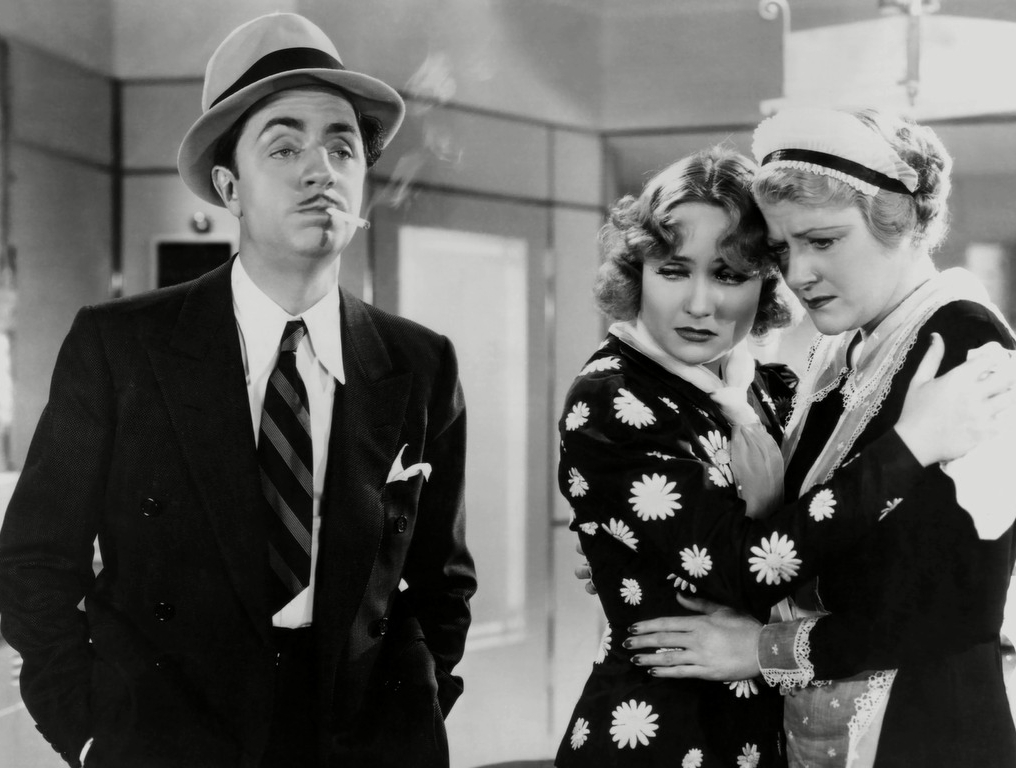My Man Godfrey
Spine #114
Year: 1936
Director: Gregory La Cava
Alright, now we’re having fun!
This is why you trust the brand. Having never seen My Man Godfrey before today, I’m so happy it’s in the collection. It’s been three months since I had an inaugural viewing of a film on this list (the last one was Odd Man Out) and both films quickly became favorites of their respective genres. It makes the decision to blind-buy films from Criterion that much easier, which is good and bad (for my wallet, at least).
My Man Godfrey is a quintessential Golden Era Hollywood comedy about society and class teeming with witty dialogue, humor, and wackiness. It opens with sisters Irene (Carol Lombard) and Cornelia Bullock (Gail Patrick) vigorously scouring the New York City dump for a “forgotten man” to bring to their party as part of a high-society scavenger hunt. We’ll learn quickly that Irene and Cornelia have a very contentious relationship built on pettiness and sibling rivalry. As much as this film is predicated upon comedic observations on class and socio-economic status, it’s really the sisters and their relationship that drive the story forward.
Case and point : if it wasn’t for this rivalry, they (and we) might never meet our man, Godfrey (William Powell). Cornelia finds Godfrey in the company of other homeless men living at the dump. His appearance is indistinguishable from the other men living there, but there’s something different about him. Cornelia asks Godfrey if he would accompany her to the Waldorf as a “forgotten man” so she can claim the scavenger hunt prize. The trick is, the award is given to the first person who brings their trophy back to the party, which is where the sibling rivalry angle comes into play.
When Godfrey takes exception to Cornelia’s dehumanizing request, Irene swoops in and makes a better pitch for his services. She talks to him, asks him questions, listens to him, and in return Godfrey agrees to be her “forgotten man” for the scavenger hunt. By the end of the evening, Irene has bested her big sister for the prize and fallen in love with Godfrey, as tends to happen in these screwball comedies from Old Hollywood. The culmination of the night’s adventure ends with a job offer – Irene invites Godfrey to be her family’s butler, as their last one is no longer employed.
What he doesn’t know is that no butler stays employed with the Bullock family for very long. The reason being – well, the Bullock family. Apart from the impetuous sisters, the family consists of Angelica (Alice Brady), who is the girls’ mother with some *ahem* peculiarities. Godfrey’s first duty as family butler entails bringing the lady of the house her hangover tomato juice, and he’s told by the embittered family maid, Molly (Jean Dixon), that Mrs. Bullock sees pixies, amongst other things. While this may seem like an embellishment to Godfrey at first, his attitude quickly changes when he realizes how literal Molly was being. Not only that, but Angelica houses and maintains a mentorship with her protégé, Carlo (Mischa Auer), who specializes is eating everything in sight and butting into the family business. That is, when he’s not practicing for a grand musical performance that will likely never happen. (It seems eating and playing the piano are not compatible activities).
Irene uses the same ploy to ensnare her new crush, Godfrey. She claims him as her protégé, though without discussing it with him first. As such, she claims responsibility for Godfrey in an effort to, well, claim him. It seems the Bullock women are sheltered creatures, because I found it peculiar that neither of these attractive, well-to-do young women are partnered up with a man of similar station. Be that as it may, Irene has stars in her eyes for our man Godfrey for the majority of the film, though his attitude toward her affections causes her to pout and throw a hissy fit on more than one occasion.
The family is rounded out (no pun intended) by Alexander (Eugene Pallette), the patriarch and financial powerhouse of the family who spends more time cleaning up messes the family makes than keeping their finances in order. The comings and goings of the Bullock family is the bread-and-butter here. Any time Godfrey is forced to interact with a member of so-called “civilized society” we’re treated to a witty barb or two, mostly at the expense of the civility of the family.
I feel like there are so many of these stories from back in the day dealing with the invisible divide between social classes. Of course I can’t think of many right now, but movies like Overboard (1987) come to mind. They usually showcase just how uncultured the upper crust truly are, usually in the face of far more refined and sophisticated behavior by characters from a lower social class. As a general rule of thumb, it’s always entertaining to watch rich, snobby brats get their comeuppance at the hand of someone below their societal station.
Like I said at the top, I’m so happy this film came up this week. The film is an absolute treat from start to finish, and I didn’t even get into the amazing William Powell, who seemingly had an unending supply of wit and charm at his disposal. Between Godfrey and probably his most famous creation, Nick Charles from The Thin Man (1934), I find myself with little hearts in my eyes like Irene for the man. It just seems so effortless for him, and the film and this character are tailor-made for a cinemagoer like me. What a wonderful film.





